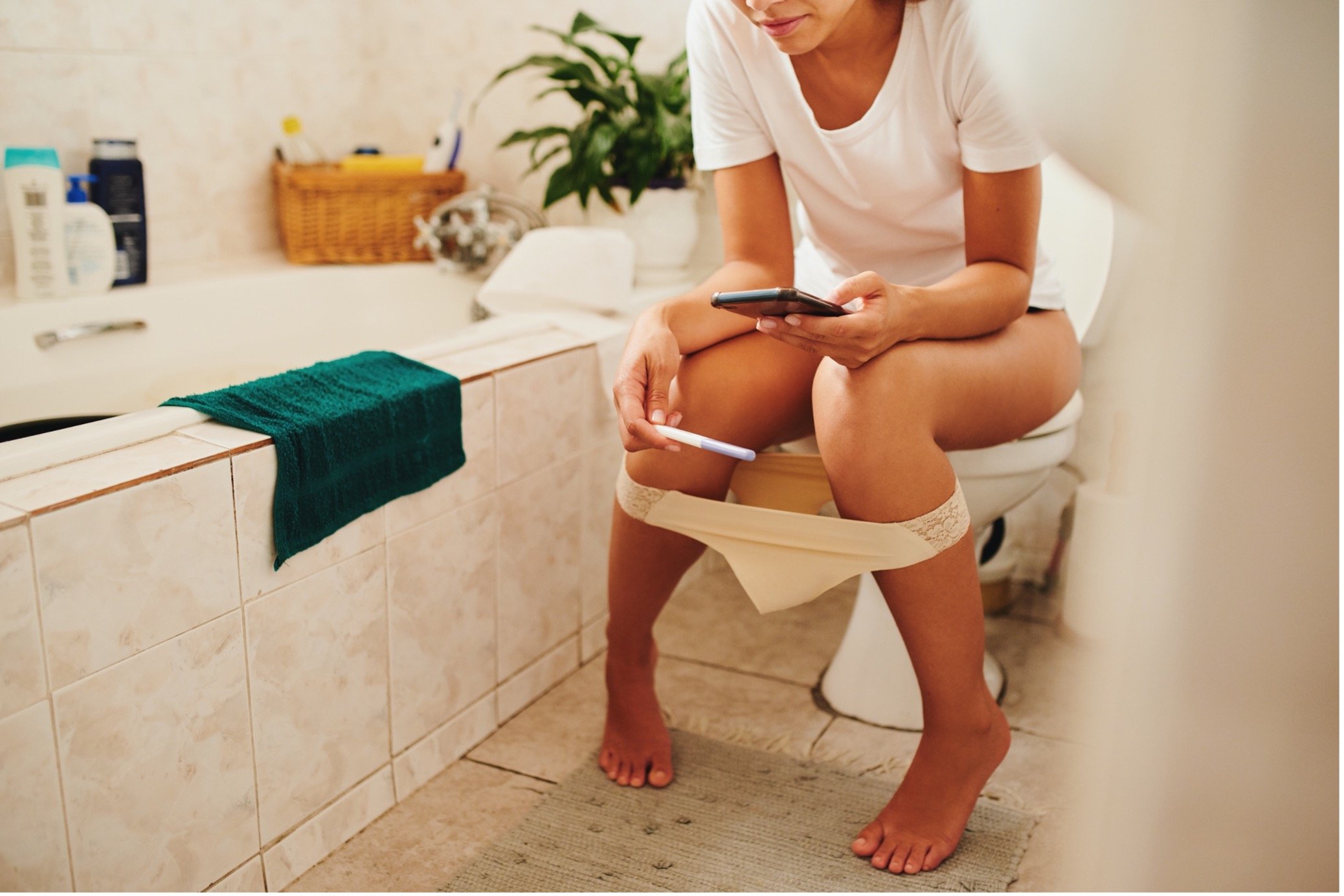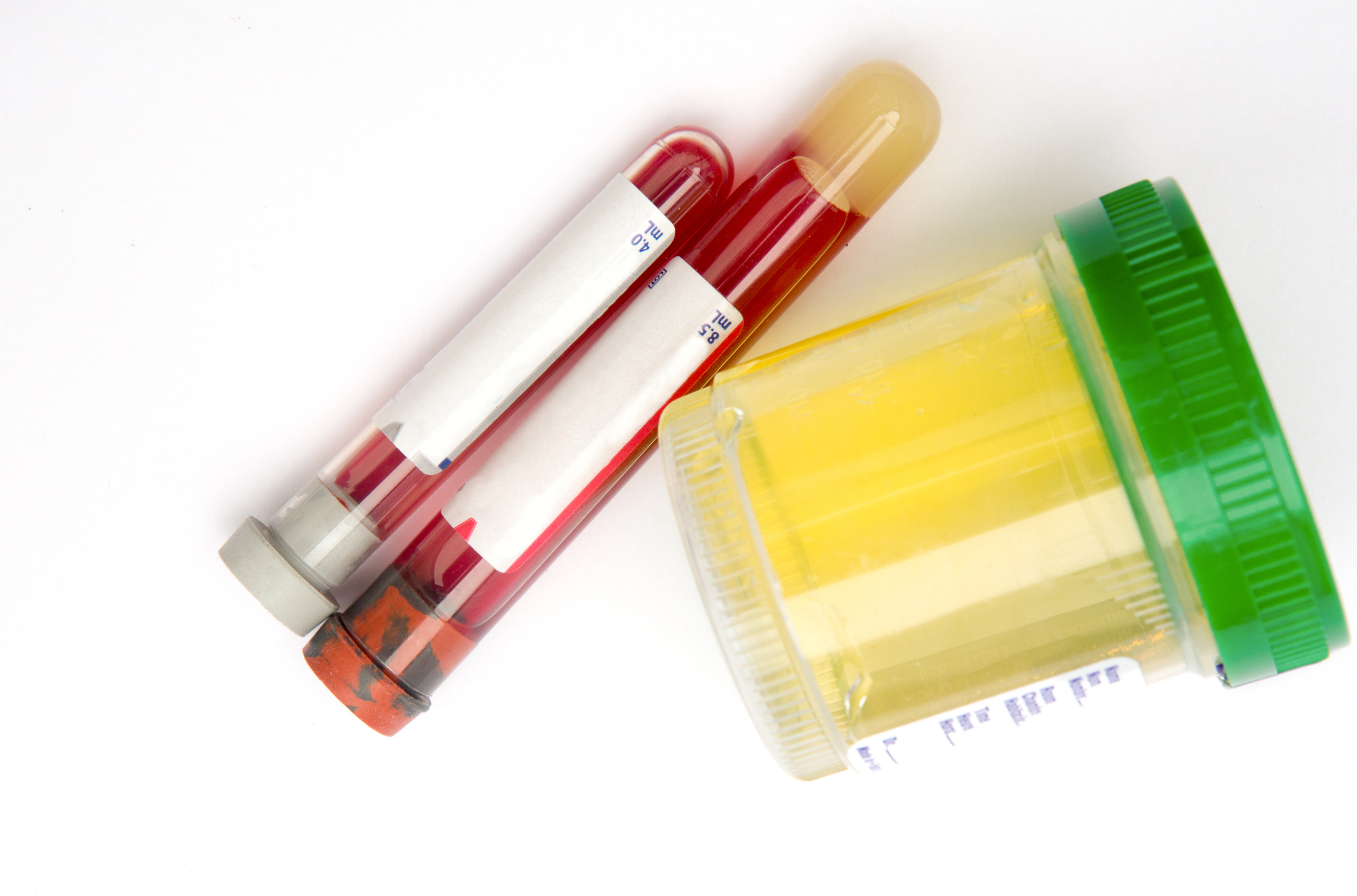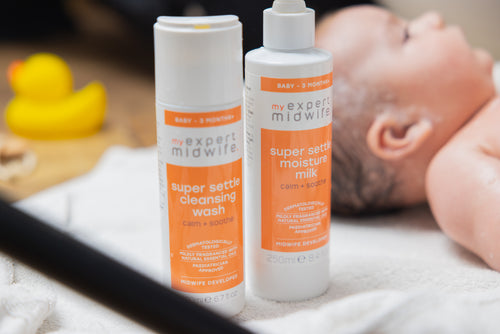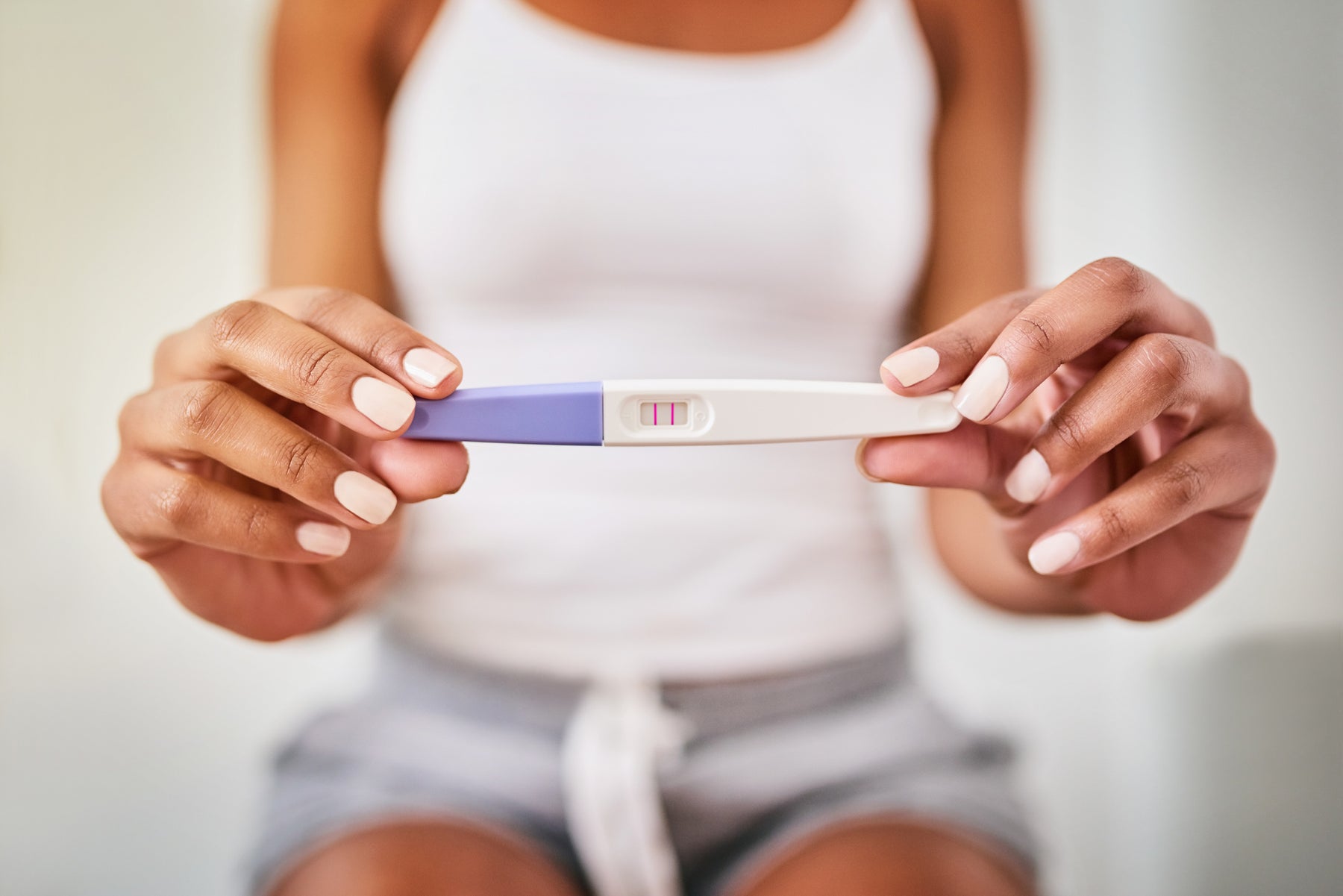Deciding when the best time to take a pregnancy test can be tricky as nerves and anticipation can take the better of us.
Read on to find out how soon you should be taking a test after a missed period, what the best time of the day - and your cycle - is to take a test, how soon you may get a positive result and what options, other than a home-test, there are.
How soon to take a test after a missed period
If you think you may be pregnant, you can do an over-the-counter urine pregnancy test as soon as you have missed your period and expect accurate results. So, if you have regular periods or chart your cycle and know when your next period is due, you can take the test on the day you expect your period or the day after you’ve missed it.
Although results are likely not as accurate, some early pregnancy tests claim to be able to detect pregnancy 6 days before you expect your next period.
Knowing when to take a pregnancy test for the most accurate results can be tricky if your periods are irregular. If this is your case, you can take a test after 21 days from when you had unprotected sex.
A positive pregnancy test result is almost always correct, whereas a negative result may not always be true. There is less risk of getting a false negative result - a ‘non-pregnant’ result when you are pregnant - when you take the test sometime after your period is due.
So, if you think you may be pregnant but get a negative result, repeat the test after a few days or, better still, after a week.
What is the best time of day to do a pregnancy test?

Pregnancy tests measure the levels of human chorionic gonadotropin (hCG) hormone and ‘detect’ a pregnancy when these are over a certain minimum - typically, 25U/L.
You can do a home pregnancy test at any time of the day, yet doing a pregnancy test using your morning urine is likely to achieve the most accurate results.
This is because urine gets diluted throughout the day, which can increase the likelihood of a false negative result.
When you use your morning urine, the hCG levels will be more concentrated, yielding a more accurate result.
What is the best time to do a pregnancy test during your cycle?
If your cycles are regular and come approximately every 28 days, you will ovulate around 2 weeks, or 14 days, after the first day of your last period. If a sperm had fertilised your egg at ovulation, the embryo would implant into the inner lining of your uterus (the endometrium) within a week from fertilisation.
This implantation is what makes your body start producing Human Chorionic Gonadotropin (HCG). The level of hCG is initially very low but increases rapidly.
Over-the-counter pregnancy tests are designed to detect a minimum level of hCG in the urine from the day after your missed period, and more sensitive, early pregnancy tests may be able to detect these levels 3-6 days before your period is due.
The best time for more accurate pregnancy test results would be from the day after you have missed your period. This will translate to day 2 of your next menstrual cycle if you are charting.
How soon will a pregnancy test read positive?

As we mentioned above, more sensitive pregnancy tests (usually marketed as ‘early pregnancy tests’) may be able to give you a positive result 3-6 days before your next period is due.
However, the accuracy of doing one of these early pregnancy tests before you miss a period is not as high.
Most standard pregnancy tests will be able to tell you if you are pregnant if you take them from the day after you’ve missed a period.
If you get a negative result, repeat the test after a few days or a week, make sure you follow the instructions correctly and, for extra accuracy, use your morning urine. Most home tests provide two testing sticks.
What other pregnancy test options are there?

Standard pregnancy tests
Standard pregnancy tests that you can buy over the counter are the most commonly used and affordable type of pregnancy test. These tests use your urine and are designed to detect a pregnancy from the day you missed a period.
Early pregnancy tests
Some brands offer ‘early pregnancy tests’ that are marketed as more sensitive and able to detect a pregnancy from as early as 6 days before your period is due.
These can be more expensive than standard tests and, as discussed above, may not offer the same accuracy. They also use your urine.
Blood pregnancy tests
Your GP may offer a blood pregnancy test in certain circumstances. These pregnancy tests detect a pregnancy as early as 9-12 days following conception.
However, they are costly, and because standard tests offer good sensitivity and accuracy, a blood test to confirm or rule out a pregnancy will only be done at your doctor's discretion. If you have the means, you can request one privately.
Summary
The best time to take a pregnancy test, and the most affordable way to do it, is from the day after you have missed your period, using a standard home pregnancy test and, for best results, your morning urine.
Other options include early pregnancy tests, which can give you a reasonably accurate result a few days earlier, or a blood test, which is only offered under specific criteria by your GP unless you opt to go private.
At My Expert Midwife, we want to help take the stress out and support you on your journey into trying to get pregnant and have created a non-for-profit Trying to Conceive kit, which includes 3 pregnancy tests, as well as 12 ovulation testing strips, an ovulation chart, a digital thermometer and a comprehensive midwife-written guide.




